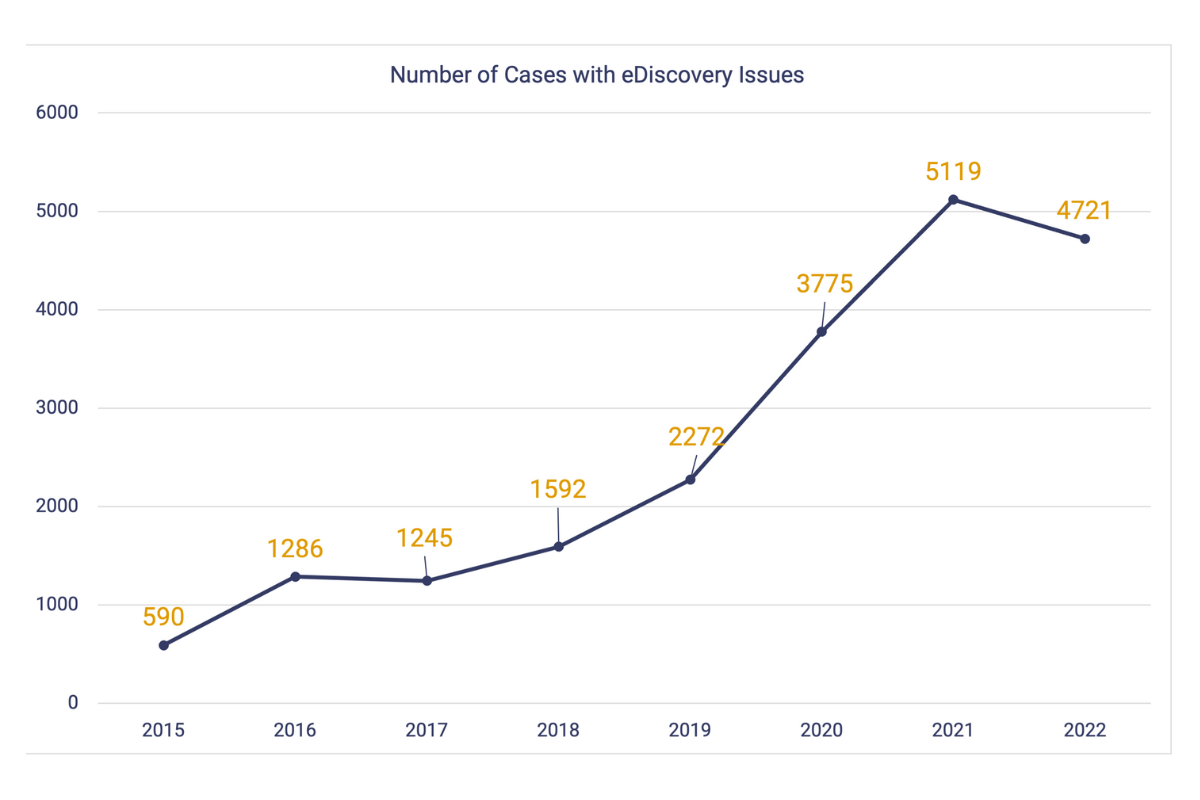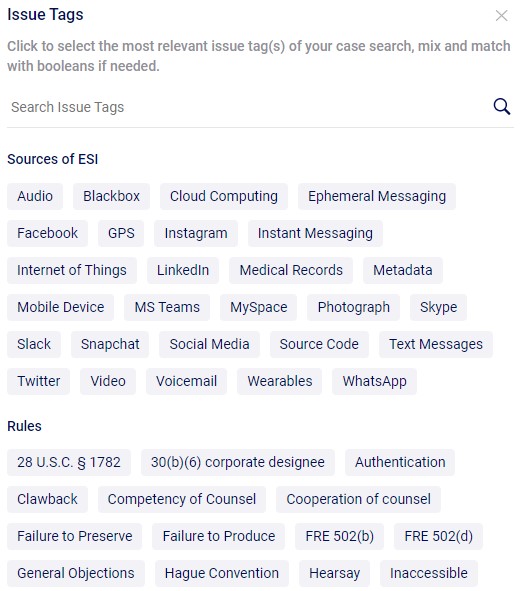We are celebrating a huge milestone at eDiscovery Assistant this week as our case team published the 30,000th case law decision in our database! If you’re not familiar with our platform, eDiscovery Assistant is a SaaS based legal research platform and knowledge center for lawyers and legal professionals and the only legal research database devoted exclusively to eDiscovery caselaw. We are a niche product designed to get answers quickly on issues in ESI.
Why is that a milestone, you ask? For that, we’ll take you back to 2012 when we first started compiling decisions into the original iPad app that was released to the App Store in July 2013 before SaaS and before responsive design. Our goal of creating an ediscovery specific database of case law decisions required manual searching of case law from many sources and then creating our proprietary issue tagging structure that gets applied to each decision.

Back in 2012, we saw 200+ decisions a year stemming back to the sprinkling of decisions in the early 2000’s, including the Zubulake decisions that kicked off this joyride. But after that, decisions started climbing at a very rapid pace, we started seeing thousands of decisions each year. 2021 saw more than 5000 decisions, and 2022 clocked in at more than 4800.
Conducting manual searches for every decision became impossible, and as technology developed, it allowed our small team to create searches and algorithms to identify decisions to come into our backend. Once filtered there, our team of eight lawyers and professionals manually review decisions for inclusion, then reads them and adds our proprietary issue tags before publishing to the platform.
We read EVERY SINGLE CASE. And we read thousands of cases that don’t get added to our platform.
Our issue tagging structure — a portion that you can see in the image to the right — lets users filter first by the issue they are trying to identify. The image is a sampling of the issue tags available for our team to apply. Issue tags are applied to cases with this question in mind — will applying this issue tag help a user find decisions on this issue? For example, in a decision in which the court mentions Facebook, but there is no analysis of data from Facebook in the decision, that issue tag would not be applied. You can validate this by searching two different ways in the platform — using the issue tag Facebook, and using “Facebook” as a search term. You’ll get different results.

Each week we hold a team meeting to review the details that come up about what/whether to include certain decisions, how to deal with new issues that arise (internet of things, wearables, initial disclosures, etc.), and when we’ve amassed enough decisions to add a new issue tag. Our most recent addition MS Teams (for Microsoft Teams) this past week came much later than we anticipated, especially with the rampant use of Teams during the pandemic. But issue tags are only added when there is case law for them to be applied to in our database.
In short, the process of providing this niche database of ediscovery decisions is complex, ever changing and a heck of a lot of work. We hope it’s helping you do discovery better.
Cheers to our team!



1 Comment
Comments are closed.